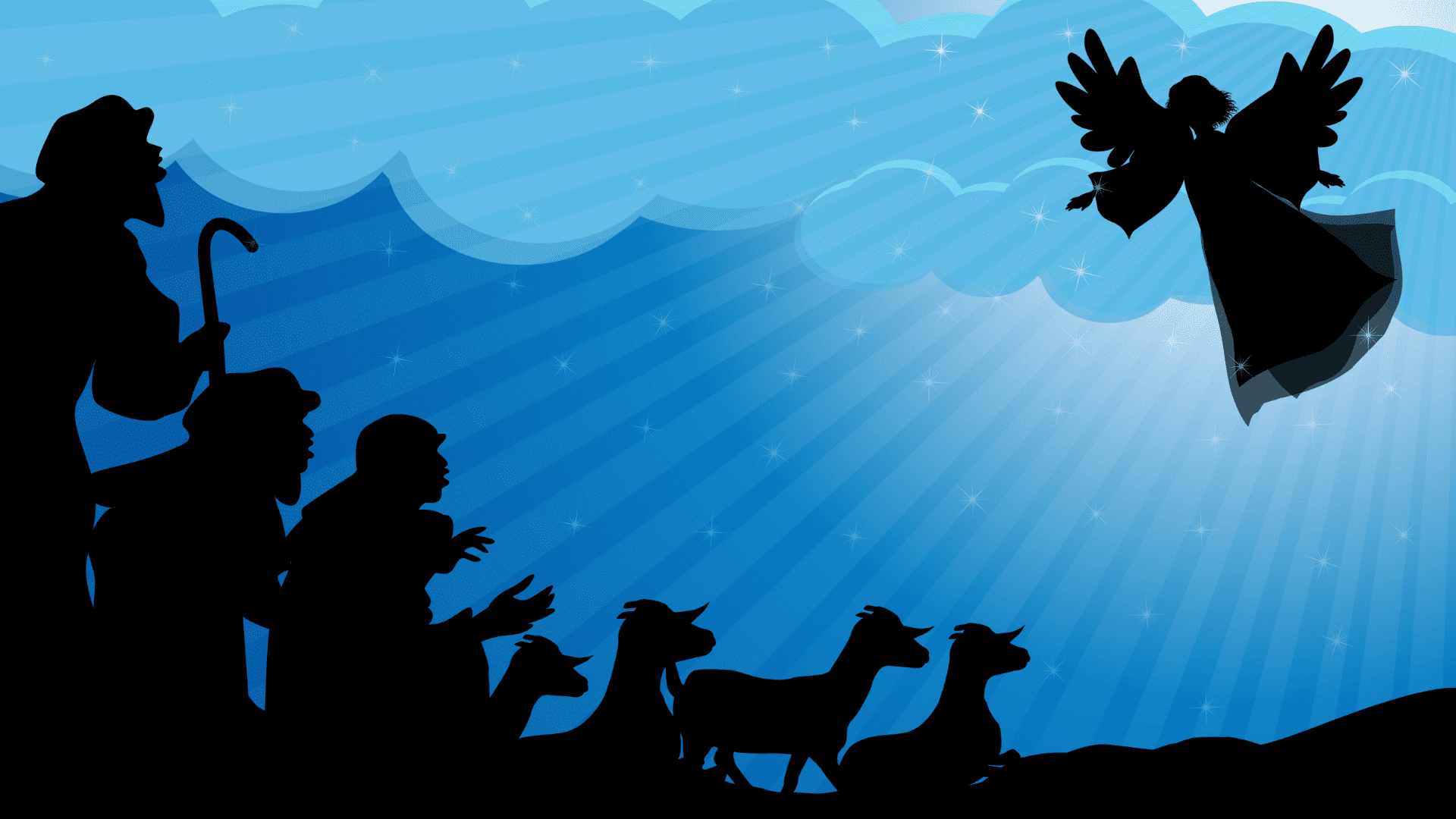Our True Condition (Luke 22:1-34)

We're currently in a series to help us prepare for Easter. We're looking at the events of Jesus' life in the week before he went to the cross. Today we're in the last hours before his arrest on the night before his death. Today's passage gives us some insight into who we really are, and what Jesus has done about it.
Have you ever struggled with seeing yourself as you really are? We've all probably seen pictures that shock us because we had no idea that we looked like that. I have good news for you. You don't have to face reality. Through technology, it's possible to live in denial. Selected models of Hewlett-Packard cameras now come with a slimming feature. HP's website says:
With the slimming feature, anyone can appear more slender – instantly! They say cameras add ten pounds, but HP digital cameras can help reverse that effect. The slimming feature, available on select HP digital camera models, is a subtle effect that can instantly trim off pounds from the subjects in your photos!
Here's my favorite part: the slimming effect "can be adjusted for a more dramatic effect."
We laugh about that, but all of us like to see ourselves better than we really are. It's painful for us to look at ourselves and see things that are not flattering. It's much easier to have a mental image of ourselves that is more flattering than reality. But it's very important for us to see ourselves for who we really are.
In his famous Institutes of Christian Religion, John Calvin wrote:
It was not without reason that the ancient proverb so strongly recommended to man the knowledge of himself. For if it is deemed disgraceful to be ignorant of things pertaining to the business of life, much more disgraceful is self-ignorance, in consequence of which we miserably deceive ourselves in matters of the highest moment, and so walk blindfold.
There are two things that we need to know about ourselves, Calvin says. First, how excellent our nature would have been had we not fallen into sin. Secondly, how miserable our condition truly is since Adam's fall. When we see this, Calvin writes, "we blush for shame, and feel truly humble."
There are few passages that help us take a realistic look at ourselves better than this one. Today's passage gives us a very realistic view of ourselves. It's hard to accept at first, but it's very important. But this passage doesn't leave us in despair, because it also gives us a picture of hope about what Christ has done about our condition. So let's look first at what we think our condition is, then what it really is, and finally what Jesus has done about it.
First, what we think our condition is.
The passage before us recounts events that took place at one of the most critical times of Jesus' life. It was Passover, and the religious leaders were determined to find a way to kill Jesus. Things were so precarious that Jesus had to use subterfuge to find a place to celebrate Passover without being arrested. There's a bit of cloak and dagger in this story because Jesus knows that he'll be arrested the first chance that his enemies get.
Jesus knows what is happening. As he eats the Passover meal with his disciples, he says in verse 15: "I have eagerly desired to eat this Passover with you before I suffer." There's a bit of emotion in this statement. This has been something that Jesus has anticipated. He knows he is about to suffer, and he wants this last meal with his disciples to prepare them for what is about to happen.
So what is the condition of the disciples at this critical time? We read in verse 24, "A dispute also arose among them as to which of them was considered to be greatest." If you've watched American Idol, you've probably seen people audition who are truly awful. You almost feel sorry for them as you watch them make fools of themselves before millions of people. Then the judges tell them how truly awful they are. You know that they're really bad when even Paula Abdul has nothing good to say. But what is amazing is when they argue. They say, 'You don't know what you're talking about. I'm really a good singer. All my friends tell me that I'm a good singer. They're always begging me to sing." It's hard to believe that people can be so self-deceived. Nobody has ever told them the truth about their abilities.
The disciples in today's passage are like that. They are arguing about which one of them is the greatest when in fact their true condition is a mess. You really should only get into a debate about who is the greatest if you in fact believe that you are great. But that's exactly what all the disciples think they are. They evidently believe in their greatness, when as we'll see in a minute they are huge messes. They shouldn't be arguing at all about who is greatest; they ought to be, as Calvin said, blushing for shame and feeling truly humble. They are completely self-deceived about their true condition.
Gordon MacDonald is a pastor and author who once failed to see his real condition. Through a very painful experience, he confronted some things about himself that he didn't know were true. He says that most of us have very optimistic view of ourselves, which causes great problems. He writes: "Almost every personal defeat begins with a failure to know ourselves, to have a clear view of our capabilities (negative and positive), our propensities, our weak sides." In other words, we tend to think we are better than we really are, which causes all kinds of problems.
John Calvin says it's incredibly important to have an accurate view of ourselves. This passage shows us that we have a tendency to have a mistaken view of ourselves. The Bible says, "The heart is deceitful above all things and beyond cure. Who can understand it?" We have a tendency to not understand our true condition and think we're better than we really are. So what is our true condition?
Second, what our condition really is.
This passage shows us our true condition with no slimming feature. It shows us as we really are.
We've already seen that the disciples were unrealistic about what they were really like. They were the spiritual equivalents of the untalented people who bomb the audition of American Idol – they thought they were a lot better off than we really were. They were self-absorbed, concerned about who was the greatest, when really they should have been humble and aware of their weaknesses. The truth is that we are not too different from the disciples. We tend to be blind to our real condition ourselves.
There's more in this passage. In verses 3 to 6, Judas conspires with the chief priests and officers against Jesus. Judas is one of the disciples. It's stunning that one of his own disciples betrayed him. We read in verse 3, "Then Satan entered Judas." You and I read this, and honestly we don't think we have anything in common with Judas.
I know what you're thinking. There's no way that any of us are like Judas. Actually, there's a lot more of Judas in all of us than we'd like to admit. In any case, if we're not like Judas, we may be like Peter. Jesus warned Peter of his real condition in verse 31. Now Judas was not the main disciple, but Peter was. But the same Satan who entered Judas also had designs on Peter. Jesus said:
Simon, Simon, Satan has asked to sift all of you as wheat. But I have prayed for you, Simon, that your faith may not fail. And when you have turned back, strengthen your brothers. (Luke 22:31-32)
And when Peter responded with confidence in his spiritual condition, Jesus broke the news about his real condition. In verse 34 he said, "I tell you, Peter, before the rooster crows today, you will deny three times that you know me." We may not be like Judas, but if we aren't maybe we're like Peter. Within hours, the bravest disciple abandoned Jesus at the word of a servant girl. Gordon MacDonald calls this the myth of "It can't happen to me," and he says, "When we utter this myth silently or aloud, we become guilty of a subtle lie." Oswald Chambers said, "Always beware of…a religion, or of a personal estimate of things that does not reconcile itself to the fact of sin." The minute we think that we're not in danger, that it couldn't happen to us, we are in more danger than we could imagine.
Then look at the disciples in verses 35-38. Jesus essentially tells the disciples that conditions had changed. Before, they could rely on the generosity of supporters. They didn't have to worry about their needs because they could rely on others to provide for them. Jesus paints a word picture for them in verse 36: "But now if you have a purse, take it, and also a bag; and if you don't have a sword, sell your cloak and buy one." He's painting a picture, but the disciples take him much too literally. They say, "See, Lord, here are two swords," and Jesus says, "That's enough." Many of the commentators state that Jesus wasn't saying two swords is enough. Instead he was throwing up his hands at the inability of the disciples to understand what he was saying.
That's not even to mention what happens when they leave the upper room. Jesus urged them to stay alert and pray. Just before his arrest he was in spiritual and emotional agony. Then we read in verse 45, "When he rose from prayer and went back to the disciples, he found them asleep, exhausted from sorrow."
If you read this chapter you do not get an encouraging picture of the disciples. You encounter betrayal, dissension, failure, dullness. Jesus longed to spend this time with them, and they just didn't get it. They did and said all the wrong things at this critical moment.
This is the truth about ourselves as well. There's a prayer we have in the bulletins this morning that starts with this confession: "Lord Jesus Christ, I admit that I am weaker and more sinful than I ever before believed." When we really see ourselves accurately, we realize the extent of our sinfulness and the desperateness of our situation. But we don't stop here and give up all hope, because if we did, we would miss the heart of this passage:
Third, what Jesus has done about it.
The Passover meal was a time for Israel to remember that they had been set free from being slaves in Egypt. In this passage, Jesus presents himself as the ultimate Passover Lamb. He foreshadows the ultimate freedom – not just freedom from slavery in Egypt, but freedom from sin, real freedom. The original Passover patterns the ultimate redemption which is still to come, and which is represented in what Jesus is about to do.
In the middle of broken people, Jesus took bread, gave thanks, and said, "This is my body given for you; do this in remembrance of me" (Luke 22:19). In the Passover meal, people ate lamb along with bitter herbs and unleavened bread. In offering his body to be eaten at Passover, he announced that he is the ultimate Passover Lamb. The Apostle Paul wrote, "For Christ, our Passover lamb, has been sacrificed" (1 Corinthians 5:7).
Then we read, "In the same way, after the supper he took the cup, saying, 'This cup is the new covenant in my blood, which is poured out for you'" (Luke 22:20). Years earlier the prophet Jeremiah had predicted a new covenant, a new agreement with God. Jeremiah wrote of this covenant:
"This is the covenant I will make with the house of Israel
after that time," declares the LORD.
"I will put my law in their minds
and write it on their hearts.
I will be their God,
and they will be my people.
No longer will they teach their neighbors,
or say to one another, 'Know the LORD,'
because they will all know me,
from the least of them to the greatest,"
declares the LORD.
"For I will forgive their wickedness
and will remember their sins no more."
(Jeremiah 31:33-34)
Now, Jesus says, it's happening. Exodus 24:8 says, "Moses then took the blood, sprinkled it on the people and said, 'This is the blood of the covenant that the LORD has made with you in accordance with all these words.'" The covenant of law was ratified with blood. Now Jesus raises the Passover cup and ratifies the new covenant, this time with his own blood. Jesus offers complete freedom through his death so that we could be free, really free.
Never forget that it was when the disciples were cocky, self-absorbed, and deluded that Jesus did this. It wasn't when we were at our best. The Apostle Paul wrote, "But God demonstrates his own love for us in this: While we were still sinners, Christ died for us."
That's why the prayer I mentioned earlier about our sinfulness goes on: "Lord Jesus Christ, I admit that I am weaker and more sinful than I ever before believed, but, through you, I am more loved and accepted than I ever dared hope. I thank you for paying my debt, bearing my punishment and offering forgiveness."
You even get a glimpse of hope as you read Luke 22. As the disciples are fighting, Jesus says:
You are those who have stood by me in my trials. And I confer on you a kingdom, just as my Father conferred one on me, so that you may eat and drink at my table in my kingdom and sit on thrones, judging the twelve tribes of Israel. (Luke 22:28-30)
Even when we're at our worst, Jesus sees a future for us because of the work that he accomplished on the cross.
You are in far worse shape than you could have imagined. But you have much more hope than you could have ever dreamed.
Becky Pippert says:
Here is where we part company decisively with our modern culture. It tells us to ignore our self-doubts and to feel only positive thoughts about ourselves. But I am saying the opposite. Pay attention to those lurking doubts. Listen closely to that nagging discontent. Yes, it is important to have a healthy self-esteem. But the irony is that the best road to health lies in the direction of realism about the sickness. Those who want the last in their lives to be the best must face the worst first. It is only in giving up on ourselves that we can go beyond ourselves and find ourselves. (Hope Has Its Reasons)
It is only in giving up in ourselves and turning to the cross that we can find the salvation that we need most.
Father, this morning we're giving up on ourselves. We really are. The fact that we're coming to the cross this morning is our admission that we couldn't save ourselves. We are like the disciples. We are self-absorbed and over-confident, and we completely miss the point.
But we believe that what we're about to celebrate is a reminder of what Jesus has done for us. When we were at our worst, Christ died for us so that we could be changed, so that we could be free.
I pray that you would remind us that we are weaker and more sinful than we ever before believed, but, through Christ, more loved and accepted than we ever dared hope. In Jesus' name, Amen.





